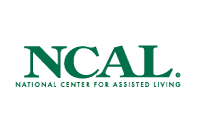Letter of Support
Attachment B-3 Letter of Support 042717.doc
Developmental Studies to Improve the National Health Care Surveys
Letter of Support
OMB: 0920-1030
Attachment B.3 Letter of Support
CDC’s
National Center for Health Statistics (NCHS) is in the process of
building a national list of all state-licensed residential care
communities in the United States.
The
listing will include residential care communities (“conventional”
residential care communities), like has been done for the previous
three waves of the National Study of Long-Term Care Providers
(NSLTCP). For the first time, the listing will include residential
care communities licensed to exclusively serve the intellectually
disabled or developmentally disabled adult populations
(“IDD-exclusive” residential care communities), to
inform NSLTCP waves beyond 2018. The
information will be collected from state government representatives
in 50 states and the District of Columbia. Information to be
collected includes the name, address, phone number, and website (if
available) of the residential care community, name, phone number,
and email address (if available) of community director, licensure
category, chain affiliation, ownership type, bed size, and type of
residents served (i.e. Alzheimer’s/dementia, developmentally
disabled).
The
Center for Excellence in Assisted Living (CEAL), an organization
representing providers, advocates, and other stakeholders in
assisted living (see theceal.org) strongly encourages your
participation as do the following organizations:
American
Seniors Housing Association (ASHA)
Argentum
(formerly ALFA)
LeadingAge
National
Center for Assisted Living/American Health Care Association
(NCAL/AHCA) The
collected data on conventional residential care communities will
enable NCHS to do the following for the 2018 NSLTCP residential care
community survey: 1) determine which providers should be in the
sampling frame; 2) inform the sampling design; 3) select a
nationally representative sample of residential care communities;
and 4) conduct nonresponse bias analysis. Although the collected
data on IDD-exclusive residential care facilities will not be used
for the 2018 survey, these data will be used to 1) identify the
prevalence and distribution of these facilities and 2) inform
inclusion and sampling design decisions for future waves of NSLTCP
beyond 2018.





| File Type | application/msword |
| Author | Debbie C. Capps |
| Last Modified By | Caffrey, Christine (CDC/OPHSS/NCHS) |
| File Modified | 2017-04-27 |
| File Created | 2017-04-27 |
© 2026 OMB.report | Privacy Policy